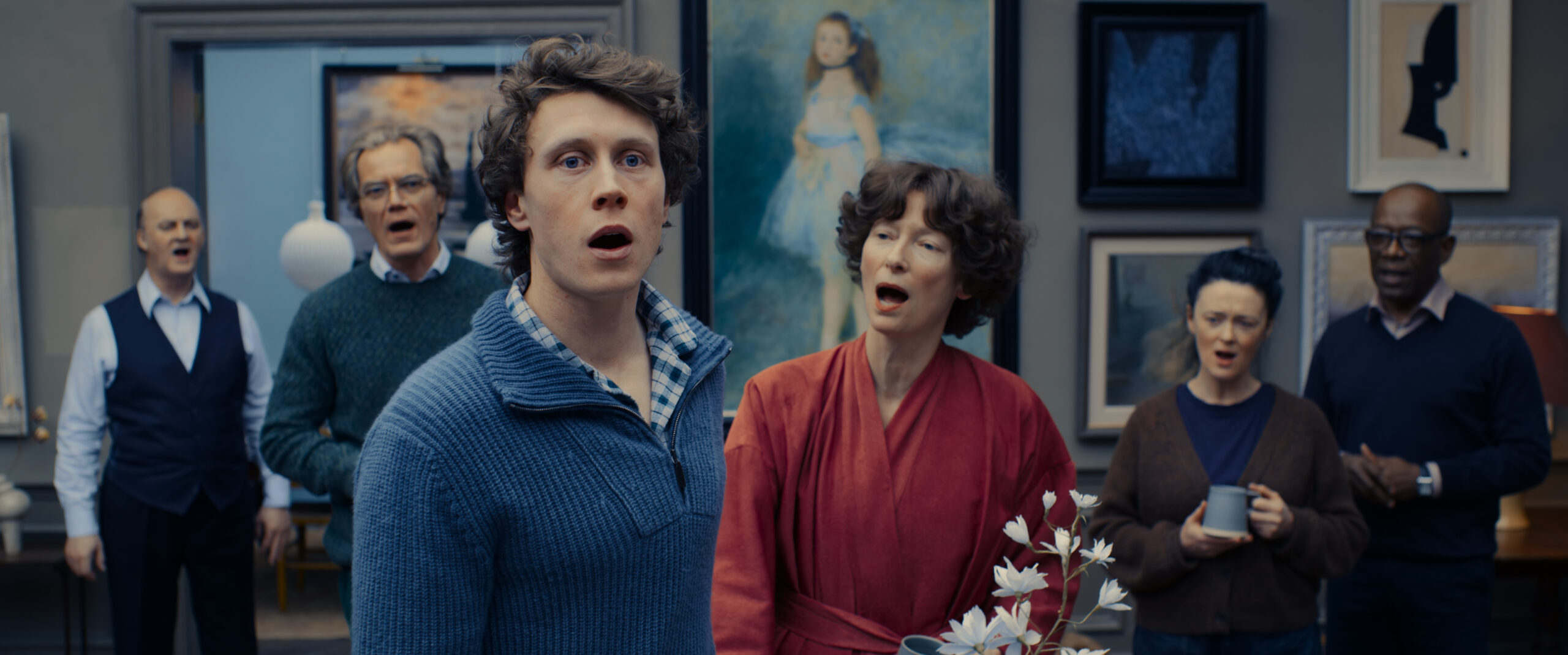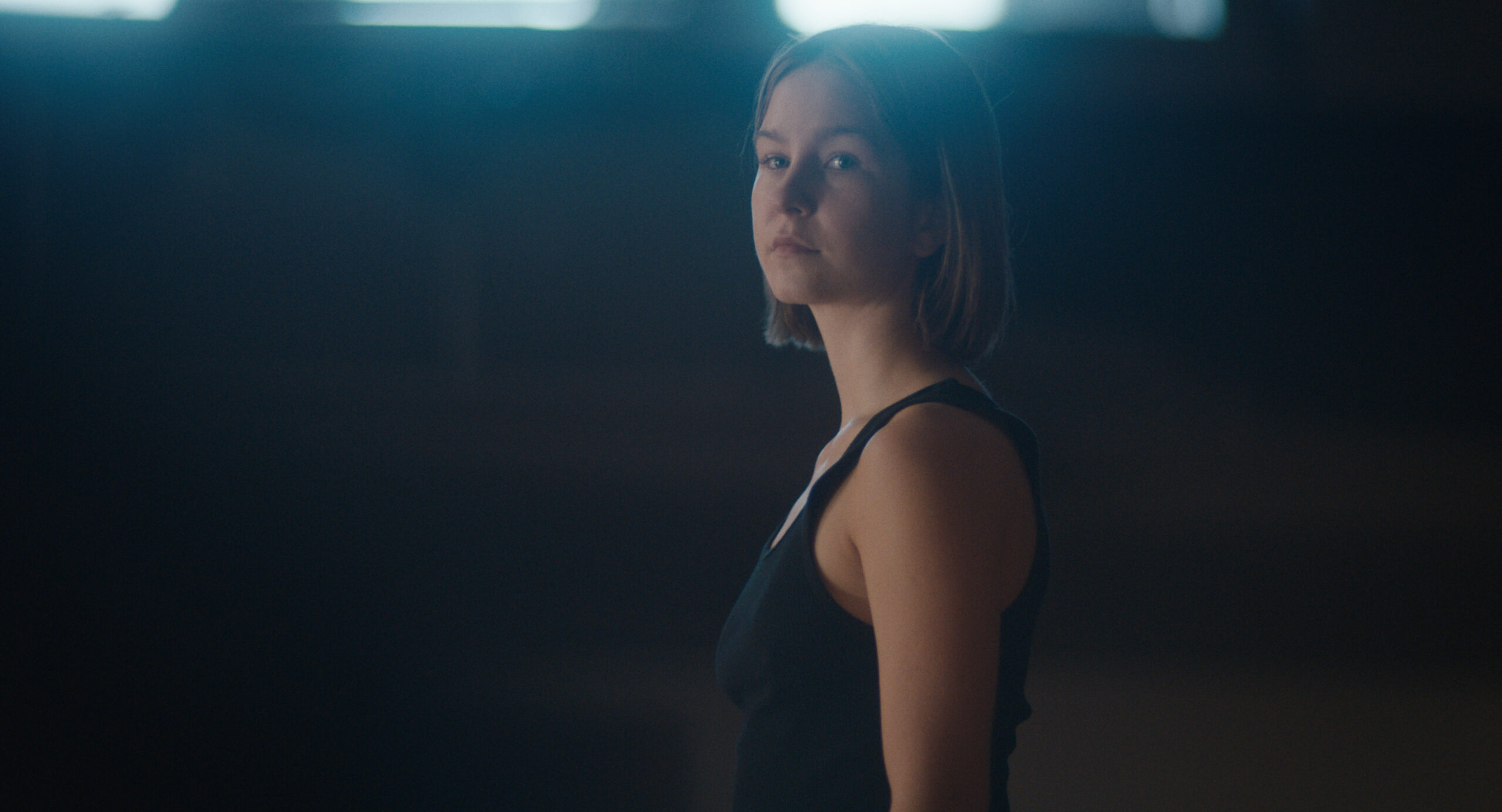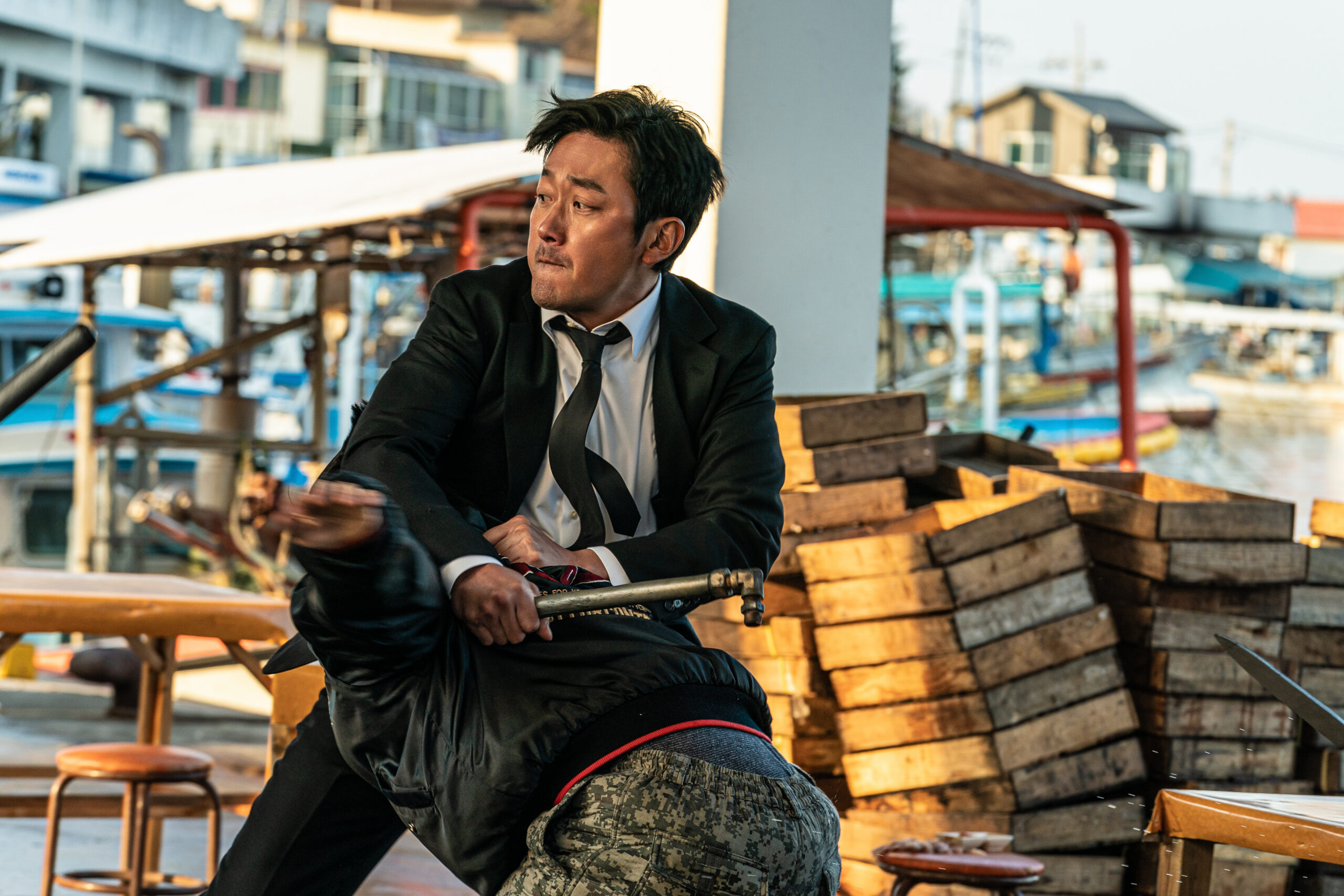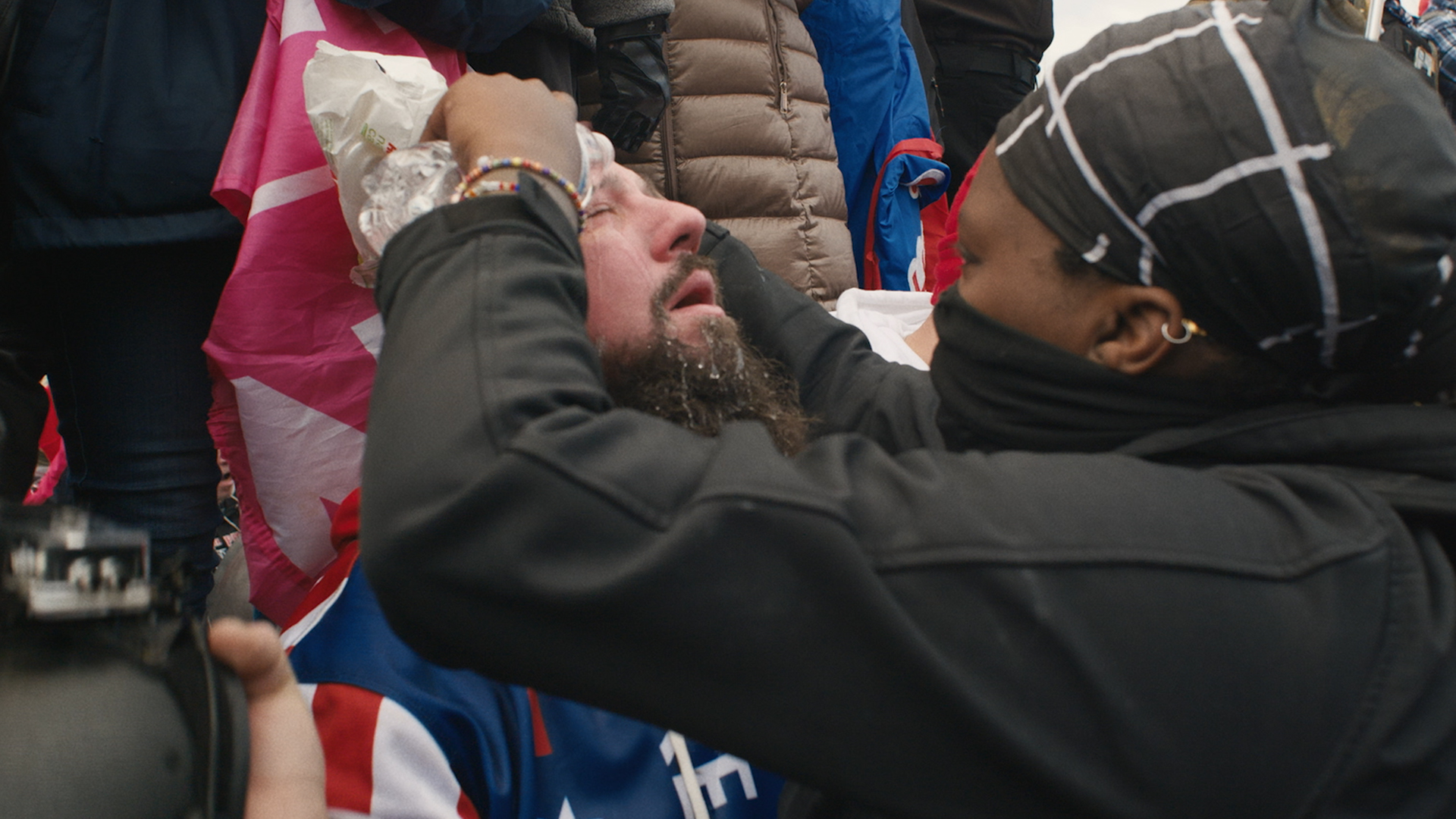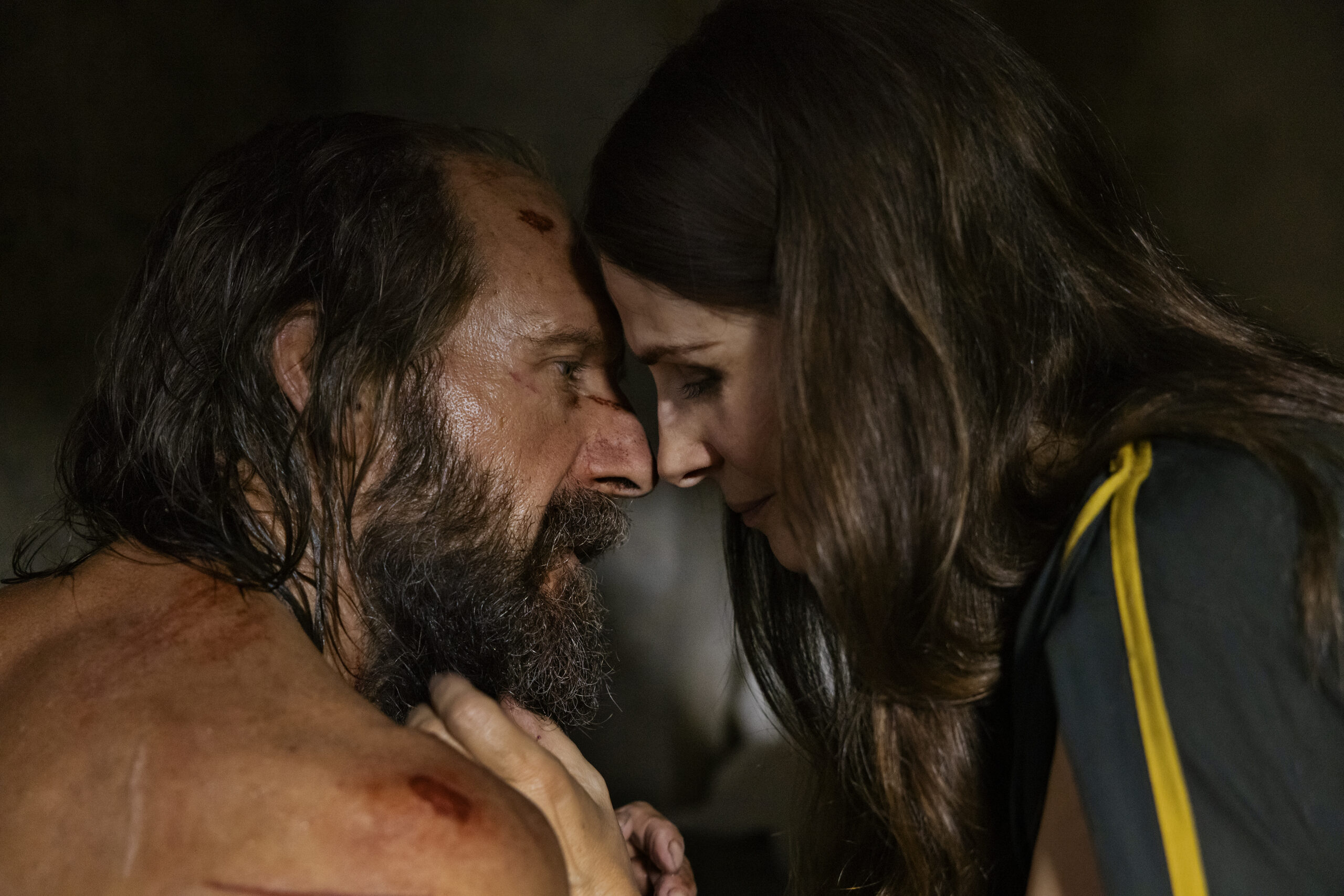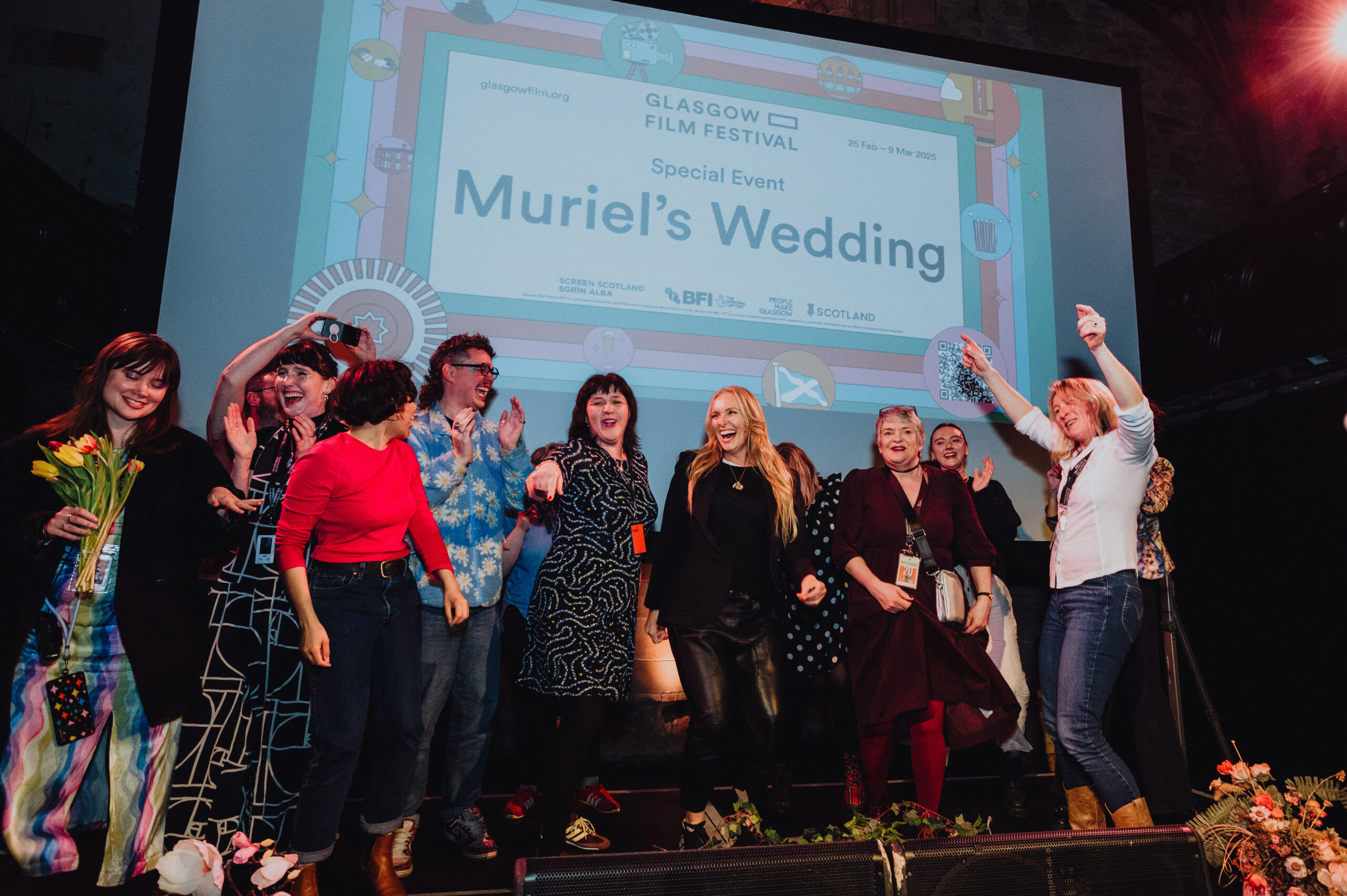With the reunification of Germany, residents of the former GDR (or DDR, as it’s known in its mother tongue) were given less than a week to trade in their currency at a truly unfavourable rate of ‘two to one’. For an economy that was already shattered, with all state industries on the brink of extinction, it was another hammer blow to the people of the regime.
And it’s here where we find Maren (Sandra Hüller) at the start of writer / director Natja Brunckhorst’s Two to One. It’s July 1990 and she’s been made unemployed; as has her husband, Robert (Max Riemelt), and just about everyone else who lives in their apartment block. The socialist architecture of their domestic dwelling in Halberstadt underlines a community entirely dependent on a non-existent state for their income and home. Robert convinces his grouchy uncle Markowski (Peter Kurth) to let him, Maren and Volker (Ronald Zehrfeld) have a look in the state-owned bunker where he works. In there, they find entire caverns full of East German marks. With just days left to cash in as much as they can carry, they must hatch a plan.
There’s a relatively playful feel throughout the film. The kaleidoscopic opening credits almost seem to make fun of the concept of money. Even the attempts to break into the bunker are met with a Mission Impossible style score and out-of-breath attempts at sneaking along corridors. This is further evident in the colour palette. When you picture former GDR neighbourhoods, you probably don’t think of sun-dappled yellows, warm corals and striking turquoise. But that is exactly the palette that Brunckhorst employs. Sure, there’s the old Trabant cars and dodgy rip-offs of Western clothing, but the Halberstadt community is anything but grey and austere. It suggests a hope for the future that is yet to be realised.

At the heart of the film are two parallel stories; a national drama and a personal one. With all the flaws of the GDR laid bare, there’s a disillusionment and an anger that juxtaposes the firmly held beliefs that life won’t be better in the West. “They’ve screwed us all these years,” Robert says to Maren. “But you always knew that,” she shrugs in reply. “Yeah, but I hoped for something else,” he sighs. It’s a quick snippet of dialogue that belies the betrayal and fears of those suddenly finding themselves ‘stateless’. There’s the devastation in realising that the work you were doing ‘for the advancement of socialism’ was nothing more than cheap labour for the West. What can you do when an entire ideology is stripped away from you, becoming meaningless overnight?
There’s also commentary on what it means to swap one extreme for the other – does greed immediately replace the ‘greater good’? Does having endless piles of cash and stacks of electronic goods suddenly make you happy? Brunckhorst’s script would suggest not. There’s a desire to share the money and good amongst everyone in the apartment block in order to get one over on the failed regime, but there’s always personal interest and aspirations bubbling away in the background. It’s an interesting insight into real life events.
On the personal level, Maren is struggling with Volker’s return, because it is immediately clear that they have had a romantic past. Whilst he urges her to leave for the West – as he did; we first meet him upon his return from Hungary – she is convinced that both he and Robert can live with her in the East. It’s perhaps the weakest part of the film, not least because Robert is allegedly oblivious to their love affair.

In terms of performances, Peter Kurth gives an engaging turn as the spirit-swigging Markowski; a man who has lived through the horrors of Germany’s past and is utterly devoid of personal politics. Sandra Hüller, although undoubtedly the draw for many here, isn’t given too much to do beyond count cash and keep both the men in her life on an even keel. Max Riemelt adds cheeky humour and genuine hurt to his character; layering both personal and national tragedy on thickly. It’s a pleasing ensemble, and there’s plenty of funny on-liners to keep you engaged.
The pace takes a dip towards the end of the second act and into the beginning of the third. Brunckhorst seems to lose the sense of whimsy and fun that really draws you into the film in the opening 45 minutes or so. It’s made up for with a ridiculous ending that is equal parts incredible and entertaining. There’s also lovely archival footage of East German companies who survived past 1990 and facts about the real money bunker – with notes still appearing as recently as the early 2000s.Two to One is an entertaining approach to a period of history that caused personal conflict and national hardship. It’s enough of a light touch to keep you engaged whilst it deals with bigger themes and a traumatic historical backdrop.
Two to One is up for the Audience Award at the Glasgow Film Festival. Get your tickets here.
https://www.youtube.com/watch?v=DCY0Z0-IseU

